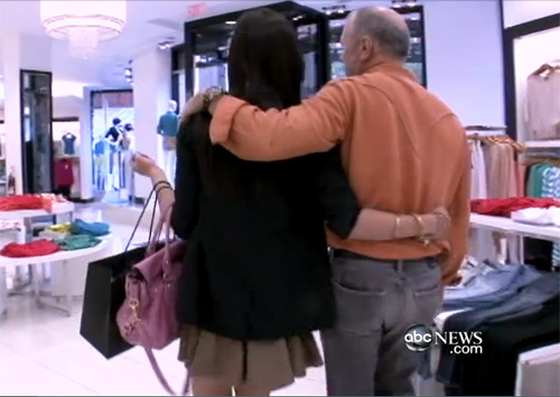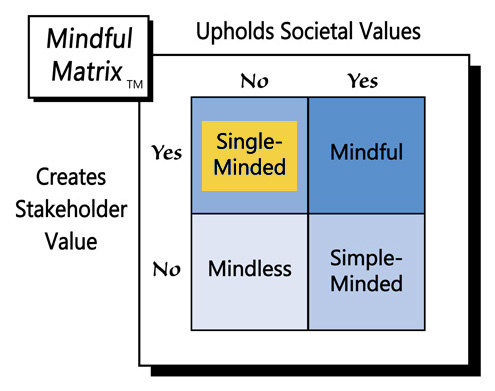According to Yahoo News, “Two million students reportedly have 'Sugar Daddies' to help pay off student loans.” If you’re thinking, “That can’t be what I think it is,” it is. Sugar daddies are generally older, wealthy men who use their abundant financial resources to secure the companionship of young, attractive women who desire financial security, if not pampering in the form of lavish gifts, trips, etc.
If you’re thinking, “That sounds like the oldest profession,” you’re right. One main difference is that sugar daddy arrangements tend to involve longer relationships, not the one-night stands of ordinary prostitution. To be fair, sugar daddies don’t necessarily demand physical intimacy, but realistically most do. Either way, it’s the buying and selling of affection.
In the spirit of gender equality, it’s important to recognize that these retail-like relationships don’t just involve older men and younger women. Some consist of mature, financially secure women, dating younger, needy men. These women are known as sugar mommas, or they’re sometimes called cougars.
Sugar daddy dating is certainly not new. Such relationships have probably existed for millennia, but why are there now so many college students willing to embrace a sugar daddy or momma as their financial plan? The rising cost of college and the desire to reduce debt probably play a role. Maybe a shift away from marriage has made it more acceptable to entertain these types of exchanges. There’s also the possibility that millennials’ fear of missing out (FOMO) plays a role—a young person doesn’t need to forgo participation in expensive activities when an older significant other bankrolls them.
Regardless the reason, sugar daddy dating has become big business. A plethora of websites cater to this unique desire. Some of the most popular ones are: SugarDaddyMeet.com, SugarDaddyForMe.com, SugarDaddie.com, and Seeking Arragement.com, the last of which is reportedly “the largest of the sugar daddy websites.” Understandably, it’s hard to find many statistics on such an industry, but anecdotal evidence suggests that sugar daddy subculture has “become more mainstream in recent years” and is “expanding rapidly,” including among students who comprise a full third of SeekingArrangement.com users. In fact, “enrollment jumps during August and January when tuition is typically due.”
What exactly does a sugar daddy relationship look like? According to SeekingArrangement.com, sugar babies, the attractive young women, receive average allowances of about $3,000 a month. In return, they provide companionship that almost always includes sex, in relationships that are not necessarily monogamous.
According to an ABC News special report, one former IT executive named Tommy supported seven different sugar babies at the same time. Likewise, some sugar babies juggle more than one sugar daddy at a time. In total, Tommy spent $150,000 dollars a year on the women, including breast implants for at least one, Monti, who he compared to a “really nice car.” In an ABC News interview, Tommy admitted that he wouldn’t be involved with any of his sugar babies if all he received from them was companionship.
Meanwhile, SeekingArrangement.com founder Brandon Wade claims that his website is not intended just to facilitate sex-for-money exchange. Instead, he contends, participants are expected to be interested in ongoing romantic relationships.
So, what’s wrong with consenting adults engaging in exchanges in which each receives something of value? The website SugarDaddySite.org describes the outcomes as “mutually beneficial relationships,” which is eerily similar to my definition of marketing (the science that facilitates mutually beneficial exchange relationships).
Well, maybe there is mutual benefit for the immediate stakeholders in the short-run, but in the long-run it’s hard to image that both parties will continue to feel the same as they begin to reckon with the fact that they are only wanted for their looks or money.
In fact, one of the young women ABC News interviewed cried as she described only being desired for her body. Another lamented that her sugar daddy was often not there when she really needed him. Given these kinds of regrets expressed by women currently involved in sugar daddy relationships, it seems likely that emotional scars will only deepen over time with greater appreciation of what was given up for financial gain. The sugar daddies and mommas might also experience remorse, especially if their actions represent marital infidelity.
So, an argument can be made that sugar daddy relationships are not really mutually beneficial for the individuals involved. Furthermore, most participants also have other relationships (e.g., current and future spouses and children) that may be adversely affected by the sugar daddy experience. The aggregate effect, therefore, is a potentially negative impact on families and society.
In light of the apparent popularity and growth of sugar daddy relationships, we must say that the organizations that market them are effective. However, the long-term, negative consequences of those relationships are not good for society, which makes sugar daddy dating a rendezvous with “Single-Minded Marketing.”
Learn more about the Mindful Matrix and Mindful Meter.
Check out Mindful Marketing Ads and Vote your Mind!




 RSS Feed
RSS Feed